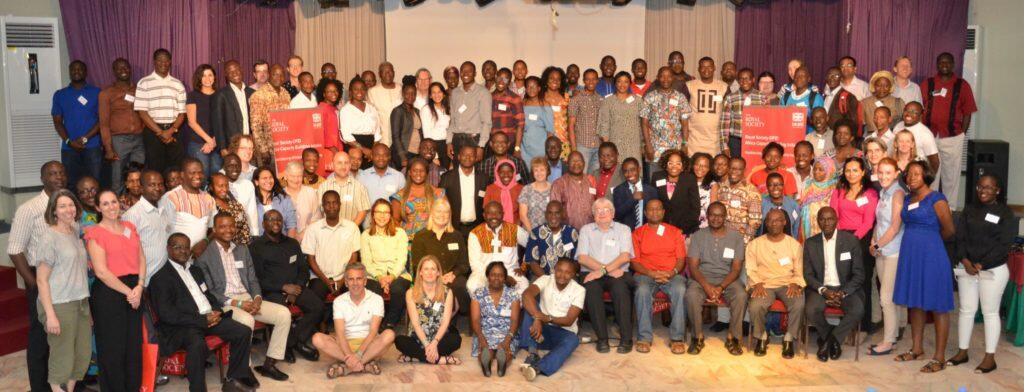
First published on the UK Collaborative on Development Research (UKCDR) website.
Establishing collaborative relationships where all partners feel equally valued for their contributions is essential for international research.
The Centre for Capacity Research (CCR) leads the monitoring, evaluation and learning component of the African Capacity Building Initiative (ACBI) which aims to strengthen the research and training capacity of higher education institutions and support the development of individual scientists in Sub-Saharan Africa. Funded by the Foreign Commonwealth and Development Office (FCDO) and managed by the Royal Society, ACBI supports 10 natural sciences research consortia, each comprising one UK and three African institutions, including 30 African scientists and 38 PhD students from 26 research institutions. ACBI has been vital in establishing UK-Africa and within-Africa partnerships and scientific networks. CCR’s researchers collected data across ACBI to explore how the ‘consortia model’ fosters equitable partnerships.
Benefits for consortia members included:
- conducting meaningful, quality research;
- enhanced career development opportunities;
- exchange of knowledge, expertise and resources;
- establishing successful research collaborations with African and non-African partners;
- and learning from consortia’s diverse research cultures.
To realise these benefits, the complementary roles and responsibilities of each of the Northern and Southern partners should be acknowledged and emphasized to enhance trust and build more equitable partnerships.
Challenges included catering for variations in partners’ competencies, capacities, expectations, and work ethos. Some participants reported tensions from ‘top-down’ communication by both UK and African institutions which left some African partners feeling undervalued and overlooked. Some considered that the management of consortium’s funds by the UK partner indicated ‘underlying power dynamics’ and a ‘lack of trust’ in African partners, at odds with ACBI’s capacity strengthening concept. However, other African partners – particularly those in institutions with complex administrative processes and finance systems – felt UK management of funds facilitated inter-partner money transfers and procurement of research equipment, and therefore accelerated research progress. These findings emphasise the importance of understanding each partner’s situation and tailoring processes to meet their needs.
Achieving equitable research partnerships with consortia means strengthening the research capacity of less capable partners and supporting them throughout the implementation of the research programme while ensuring that they feel valued, acknowledged and trusted. To achieve this, and in response to challenges flagged by the CCR research team, the Royal Society ACBI management team created proactive, sensitive and responsive management systems. They had regular open (and sometimes difficult) discussions with all partners and encouraged consortium leaders to acknowledge and meet the different needs of all partners.
Having an independent ‘learning-action’ research team such as CCR, embedded within large programmes such as ACBI, ensures that high-quality, informative, anonymised evidence around challenges can be quickly generated as they emerge. It also helps maintain an appropriate distance between the funders, programme managers and grantees. Unlike an end-of-programme evaluation, an embedded ‘learning-action’ team adds value by maximising opportunities for within-programme improvements and also provides evidence-based lessons to improve future programmes.
Tips for ensuring equitable partnerships within research consortia:
- Focus on planning and management from the start to promote equitable partnerships
- Be transparent about roles, responsibilities, finances, budgets and reporting and communicate effectively and regularly
- Be aware of – and actively consider – the cultural, social and political context and sensitivities of each partner
- Provide language support to ensure equitable participation (e.g., among English and French speakers)
- Support the establishment of alumni networks to foster future collaborations among researchers
- Ensure institutions provide a supportive environment to promote the wellbeing of researchers and research support staff so they have constructive relationships and can flourish